How AI Tackles Market Research Panel Recruitment Challenges
How AI Tackles Market Research Panel Recruitment Challenges
How AI Tackles Market Research Panel Recruitment Challenges



In the dynamic world of market research, recruiting the right panel participants is crucial for obtaining valuable and accurate insights. However, this process is fraught with challenges, particularly in qualitative market research, where depth and nuance are essential. Metaforms, with its AI-native survey builder, aims to address these challenges head-on. In this post, we'll explore the different types of market research panel participants, the potential fraud, biases, and behaviors that impact research, and how AI tools tackle these challenges. We'll also look at future trends and the pivotal role AI-native survey builders play in enhancing the quality of qualitative market research panels.
Different Types of Market Research Panel Participants
Market research panels consist of various participant types, each bringing unique perspectives and potential challenges:
Consumers: Everyday users of products and services, whose insights are crucial for understanding customer satisfaction, preferences, and pain points.
Business Professionals: Individuals with industry-specific knowledge, offering insights into market trends, business strategies, and professional use cases.
Patients: Particularly relevant in healthcare research, patients provide essential feedback on treatments, experiences, and healthcare services.
Experts: Subject matter experts whose in-depth knowledge offer high-value insights into niche areas.
General Population: Diverse participants who represent a broad demographic, useful for understanding general public opinions and trends.
Fraud, Biases, and Behaviors in Market Research Participants
Recruiting participants isn't just about filling seats; it's about ensuring the integrity and reliability of the data collected. Here are some common issues:
Fraudulent Participants: Individuals who join panels multiple times or provide false information to qualify for incentives.
Professional Survey Takers: Participants who frequently take surveys, potentially skewing data with their over-represented views.
Inattentive Respondents: Participants who rush through surveys without giving thoughtful answers, leading to low-quality data.
Biased Responses: Participants who, consciously or unconsciously, provide answers that they think are expected or desirable rather than their true opinions.
Panel Fatigue: Over-engagement in surveys lead to participant fatigue, where respondents become less engaged and provide lower quality data over time.
These issues significantly impact the validity of qualitative research, leading to misleading conclusions and ineffective business decisions.
The Role of AI in Tackling Panel Recruitment Challenges
AI-powered tools are revolutionizing market research panel recruitment by addressing these challenges head-on:
Participant Verification: AI-powered survey platforms cross-verify participant information against multiple databases to prevent fraudulent entries. This ensures that each participant is unique and genuine.
Behavioral Analysis: By analyzing patterns in survey responses, AI identifies professional survey takers and inattentive respondents, flagging them for removal or additional screening.
Adaptive Questioning: AI adjusts the complexity and focus of questions based on real-time analysis of participant engagement, reducing bias and improving the quality of responses.
Sentiment Analysis: Advanced AI algorithms perform sentiment analysis on open-ended responses to detect underlying emotions and biases, ensuring more accurate insights.
Dynamic Panel Management: AI survey tools enable dynamic recruitment and management of panels, ensuring a diverse and representative sample that evolves with research needs.
AI Tools Used in Market Research Panel Recruitment
Natural Language Processing (NLP): NLP plays a crucial role in analyzing open-ended responses from participants. It helps in extracting meaningful insights by identifying key themes, sentiments, and patterns in textual data. This enables market researchers to understand participant opinions and feedback more comprehensively, providing deeper qualitative insights that complement quantitative data.
Machine Learning Algorithms: These algorithms are utilized to detect fraudulent behavior and patterns indicative of poor-quality responses. By analyzing historical data and real-time inputs, machine learning models can flag suspicious activities such as bots, duplicate entries, or inconsistent responses. This enhances data quality and ensures that only genuine participant inputs contribute to the research findings.
Predictive Analytics: Predictive analytics techniques are employed to forecast participant engagement and predict potential drop-off points in survey completion. By analyzing participant behavior and survey response patterns, predictive models can anticipate where participants might abandon surveys or lose interest. This allows market research agencies to optimize survey design and participant engagement strategies proactively.
Chatbots and Virtual Assistants: AI-powered chatbots and virtual assistants are deployed to interact with participants in real-time. They answer queries, provide clarifications on survey questions, and guide participants through the survey process. This improves participant experience by offering immediate assistance, reducing dropout rates, and ensuring higher completion rates for surveys.
Artificial Intelligence collectively empower market research agencies to streamline panel recruitment processes, enhance data quality, and improve participant engagement in qualitative market research studies. By leveraging these technologies, market research agencies achieve more accurate insights and make informed business decisions based on robust, reliable data.
In conclusion, AI-powered survey builders such as Metaforms are transforming the landscape of qualitative market research panel recruitment by addressing inherent challenges like fraud, biases, and participant engagement. The AI survey tools enhance data integrity through advanced verification and fraud detection, while also optimizing participant experiences with adaptive survey designs. Looking ahead, the future promises even more sophisticated AI applications, from personalized recruitment strategies to real-time data analysis, ensuring market research agencies reliably capture and interpret insights that drive strategic decisions and innovation in the healthcare sector and beyond. Embracing these innovations is key to staying competitive and effective in a rapidly evolving market research environment.
In the dynamic world of market research, recruiting the right panel participants is crucial for obtaining valuable and accurate insights. However, this process is fraught with challenges, particularly in qualitative market research, where depth and nuance are essential. Metaforms, with its AI-native survey builder, aims to address these challenges head-on. In this post, we'll explore the different types of market research panel participants, the potential fraud, biases, and behaviors that impact research, and how AI tools tackle these challenges. We'll also look at future trends and the pivotal role AI-native survey builders play in enhancing the quality of qualitative market research panels.
Different Types of Market Research Panel Participants
Market research panels consist of various participant types, each bringing unique perspectives and potential challenges:
Consumers: Everyday users of products and services, whose insights are crucial for understanding customer satisfaction, preferences, and pain points.
Business Professionals: Individuals with industry-specific knowledge, offering insights into market trends, business strategies, and professional use cases.
Patients: Particularly relevant in healthcare research, patients provide essential feedback on treatments, experiences, and healthcare services.
Experts: Subject matter experts whose in-depth knowledge offer high-value insights into niche areas.
General Population: Diverse participants who represent a broad demographic, useful for understanding general public opinions and trends.
Fraud, Biases, and Behaviors in Market Research Participants
Recruiting participants isn't just about filling seats; it's about ensuring the integrity and reliability of the data collected. Here are some common issues:
Fraudulent Participants: Individuals who join panels multiple times or provide false information to qualify for incentives.
Professional Survey Takers: Participants who frequently take surveys, potentially skewing data with their over-represented views.
Inattentive Respondents: Participants who rush through surveys without giving thoughtful answers, leading to low-quality data.
Biased Responses: Participants who, consciously or unconsciously, provide answers that they think are expected or desirable rather than their true opinions.
Panel Fatigue: Over-engagement in surveys lead to participant fatigue, where respondents become less engaged and provide lower quality data over time.
These issues significantly impact the validity of qualitative research, leading to misleading conclusions and ineffective business decisions.
The Role of AI in Tackling Panel Recruitment Challenges
AI-powered tools are revolutionizing market research panel recruitment by addressing these challenges head-on:
Participant Verification: AI-powered survey platforms cross-verify participant information against multiple databases to prevent fraudulent entries. This ensures that each participant is unique and genuine.
Behavioral Analysis: By analyzing patterns in survey responses, AI identifies professional survey takers and inattentive respondents, flagging them for removal or additional screening.
Adaptive Questioning: AI adjusts the complexity and focus of questions based on real-time analysis of participant engagement, reducing bias and improving the quality of responses.
Sentiment Analysis: Advanced AI algorithms perform sentiment analysis on open-ended responses to detect underlying emotions and biases, ensuring more accurate insights.
Dynamic Panel Management: AI survey tools enable dynamic recruitment and management of panels, ensuring a diverse and representative sample that evolves with research needs.
AI Tools Used in Market Research Panel Recruitment
Natural Language Processing (NLP): NLP plays a crucial role in analyzing open-ended responses from participants. It helps in extracting meaningful insights by identifying key themes, sentiments, and patterns in textual data. This enables market researchers to understand participant opinions and feedback more comprehensively, providing deeper qualitative insights that complement quantitative data.
Machine Learning Algorithms: These algorithms are utilized to detect fraudulent behavior and patterns indicative of poor-quality responses. By analyzing historical data and real-time inputs, machine learning models can flag suspicious activities such as bots, duplicate entries, or inconsistent responses. This enhances data quality and ensures that only genuine participant inputs contribute to the research findings.
Predictive Analytics: Predictive analytics techniques are employed to forecast participant engagement and predict potential drop-off points in survey completion. By analyzing participant behavior and survey response patterns, predictive models can anticipate where participants might abandon surveys or lose interest. This allows market research agencies to optimize survey design and participant engagement strategies proactively.
Chatbots and Virtual Assistants: AI-powered chatbots and virtual assistants are deployed to interact with participants in real-time. They answer queries, provide clarifications on survey questions, and guide participants through the survey process. This improves participant experience by offering immediate assistance, reducing dropout rates, and ensuring higher completion rates for surveys.
Artificial Intelligence collectively empower market research agencies to streamline panel recruitment processes, enhance data quality, and improve participant engagement in qualitative market research studies. By leveraging these technologies, market research agencies achieve more accurate insights and make informed business decisions based on robust, reliable data.
In conclusion, AI-powered survey builders such as Metaforms are transforming the landscape of qualitative market research panel recruitment by addressing inherent challenges like fraud, biases, and participant engagement. The AI survey tools enhance data integrity through advanced verification and fraud detection, while also optimizing participant experiences with adaptive survey designs. Looking ahead, the future promises even more sophisticated AI applications, from personalized recruitment strategies to real-time data analysis, ensuring market research agencies reliably capture and interpret insights that drive strategic decisions and innovation in the healthcare sector and beyond. Embracing these innovations is key to staying competitive and effective in a rapidly evolving market research environment.
In the dynamic world of market research, recruiting the right panel participants is crucial for obtaining valuable and accurate insights. However, this process is fraught with challenges, particularly in qualitative market research, where depth and nuance are essential. Metaforms, with its AI-native survey builder, aims to address these challenges head-on. In this post, we'll explore the different types of market research panel participants, the potential fraud, biases, and behaviors that impact research, and how AI tools tackle these challenges. We'll also look at future trends and the pivotal role AI-native survey builders play in enhancing the quality of qualitative market research panels.
Different Types of Market Research Panel Participants
Market research panels consist of various participant types, each bringing unique perspectives and potential challenges:
Consumers: Everyday users of products and services, whose insights are crucial for understanding customer satisfaction, preferences, and pain points.
Business Professionals: Individuals with industry-specific knowledge, offering insights into market trends, business strategies, and professional use cases.
Patients: Particularly relevant in healthcare research, patients provide essential feedback on treatments, experiences, and healthcare services.
Experts: Subject matter experts whose in-depth knowledge offer high-value insights into niche areas.
General Population: Diverse participants who represent a broad demographic, useful for understanding general public opinions and trends.
Fraud, Biases, and Behaviors in Market Research Participants
Recruiting participants isn't just about filling seats; it's about ensuring the integrity and reliability of the data collected. Here are some common issues:
Fraudulent Participants: Individuals who join panels multiple times or provide false information to qualify for incentives.
Professional Survey Takers: Participants who frequently take surveys, potentially skewing data with their over-represented views.
Inattentive Respondents: Participants who rush through surveys without giving thoughtful answers, leading to low-quality data.
Biased Responses: Participants who, consciously or unconsciously, provide answers that they think are expected or desirable rather than their true opinions.
Panel Fatigue: Over-engagement in surveys lead to participant fatigue, where respondents become less engaged and provide lower quality data over time.
These issues significantly impact the validity of qualitative research, leading to misleading conclusions and ineffective business decisions.
The Role of AI in Tackling Panel Recruitment Challenges
AI-powered tools are revolutionizing market research panel recruitment by addressing these challenges head-on:
Participant Verification: AI-powered survey platforms cross-verify participant information against multiple databases to prevent fraudulent entries. This ensures that each participant is unique and genuine.
Behavioral Analysis: By analyzing patterns in survey responses, AI identifies professional survey takers and inattentive respondents, flagging them for removal or additional screening.
Adaptive Questioning: AI adjusts the complexity and focus of questions based on real-time analysis of participant engagement, reducing bias and improving the quality of responses.
Sentiment Analysis: Advanced AI algorithms perform sentiment analysis on open-ended responses to detect underlying emotions and biases, ensuring more accurate insights.
Dynamic Panel Management: AI survey tools enable dynamic recruitment and management of panels, ensuring a diverse and representative sample that evolves with research needs.
AI Tools Used in Market Research Panel Recruitment
Natural Language Processing (NLP): NLP plays a crucial role in analyzing open-ended responses from participants. It helps in extracting meaningful insights by identifying key themes, sentiments, and patterns in textual data. This enables market researchers to understand participant opinions and feedback more comprehensively, providing deeper qualitative insights that complement quantitative data.
Machine Learning Algorithms: These algorithms are utilized to detect fraudulent behavior and patterns indicative of poor-quality responses. By analyzing historical data and real-time inputs, machine learning models can flag suspicious activities such as bots, duplicate entries, or inconsistent responses. This enhances data quality and ensures that only genuine participant inputs contribute to the research findings.
Predictive Analytics: Predictive analytics techniques are employed to forecast participant engagement and predict potential drop-off points in survey completion. By analyzing participant behavior and survey response patterns, predictive models can anticipate where participants might abandon surveys or lose interest. This allows market research agencies to optimize survey design and participant engagement strategies proactively.
Chatbots and Virtual Assistants: AI-powered chatbots and virtual assistants are deployed to interact with participants in real-time. They answer queries, provide clarifications on survey questions, and guide participants through the survey process. This improves participant experience by offering immediate assistance, reducing dropout rates, and ensuring higher completion rates for surveys.
Artificial Intelligence collectively empower market research agencies to streamline panel recruitment processes, enhance data quality, and improve participant engagement in qualitative market research studies. By leveraging these technologies, market research agencies achieve more accurate insights and make informed business decisions based on robust, reliable data.
In conclusion, AI-powered survey builders such as Metaforms are transforming the landscape of qualitative market research panel recruitment by addressing inherent challenges like fraud, biases, and participant engagement. The AI survey tools enhance data integrity through advanced verification and fraud detection, while also optimizing participant experiences with adaptive survey designs. Looking ahead, the future promises even more sophisticated AI applications, from personalized recruitment strategies to real-time data analysis, ensuring market research agencies reliably capture and interpret insights that drive strategic decisions and innovation in the healthcare sector and beyond. Embracing these innovations is key to staying competitive and effective in a rapidly evolving market research environment.
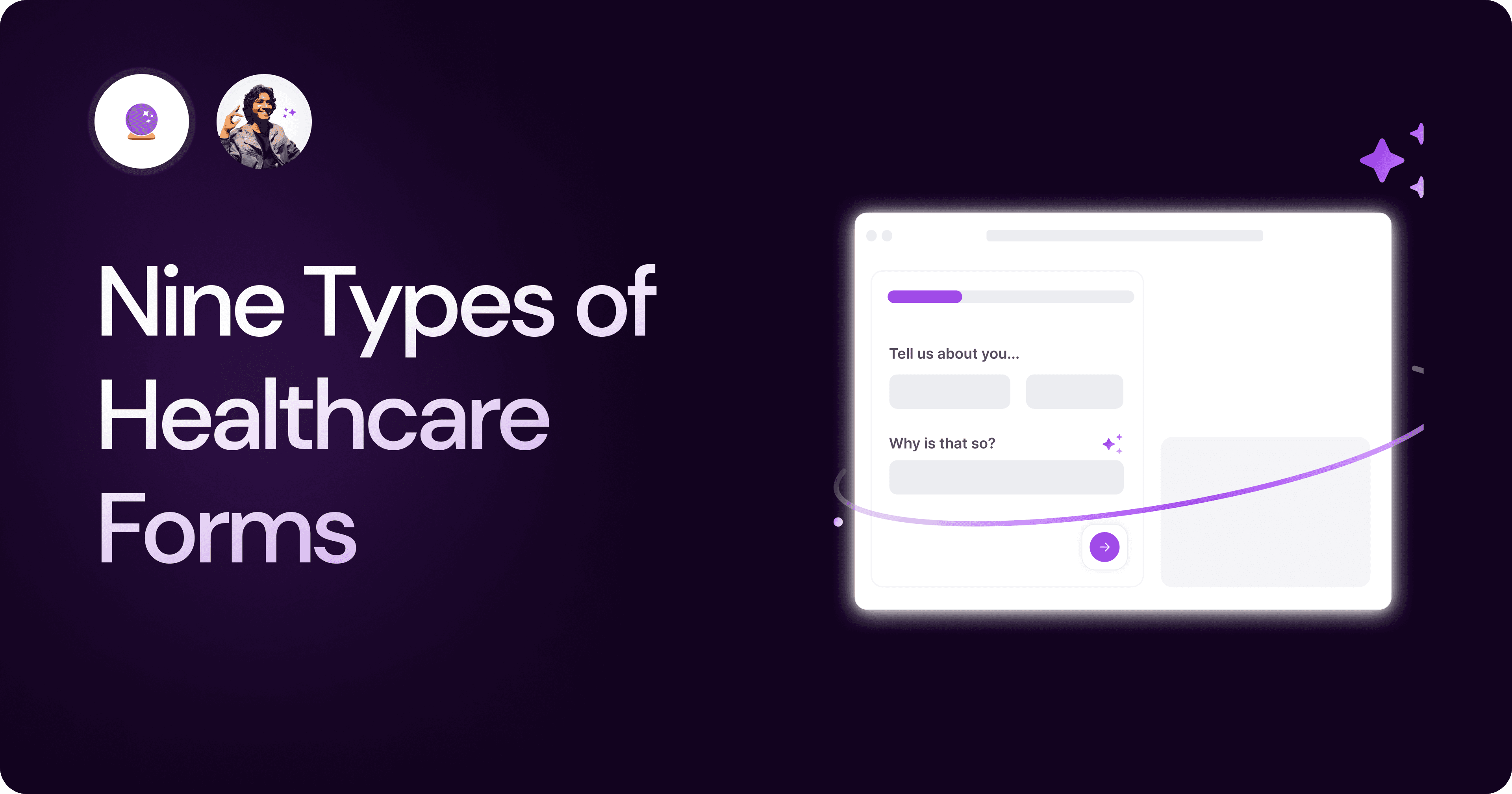
Nine Types of Healthcare and Medical Forms.
Medical forms are a must-have for any healthcare business or practitioner. Learn about the different kinds of medical and healthcare forms.
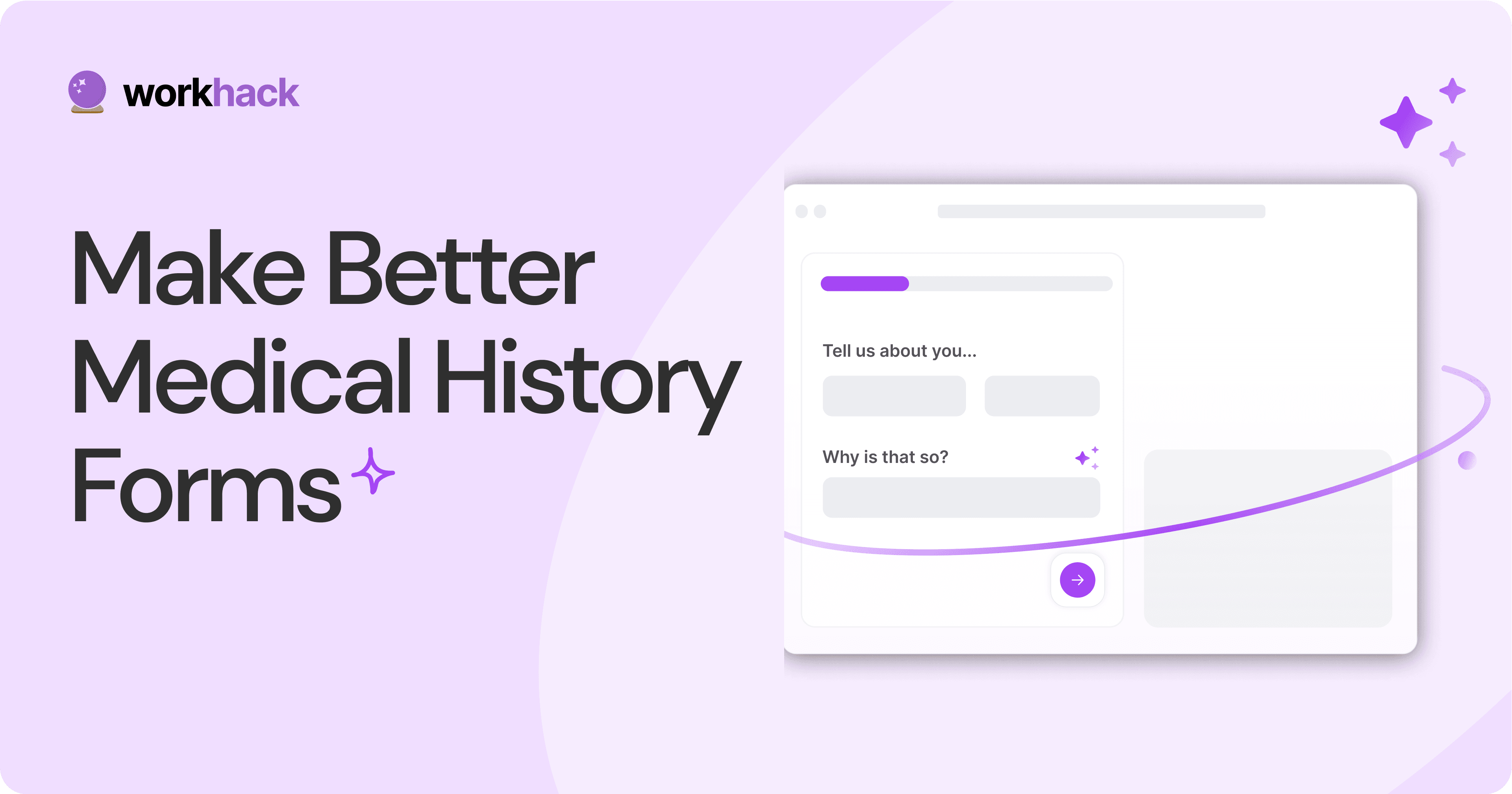
4 Tips for Better Medical History Forms.
Medical history forms are central to patient care, onboarding, and medical administration records. Learn how to make them easier to fill.
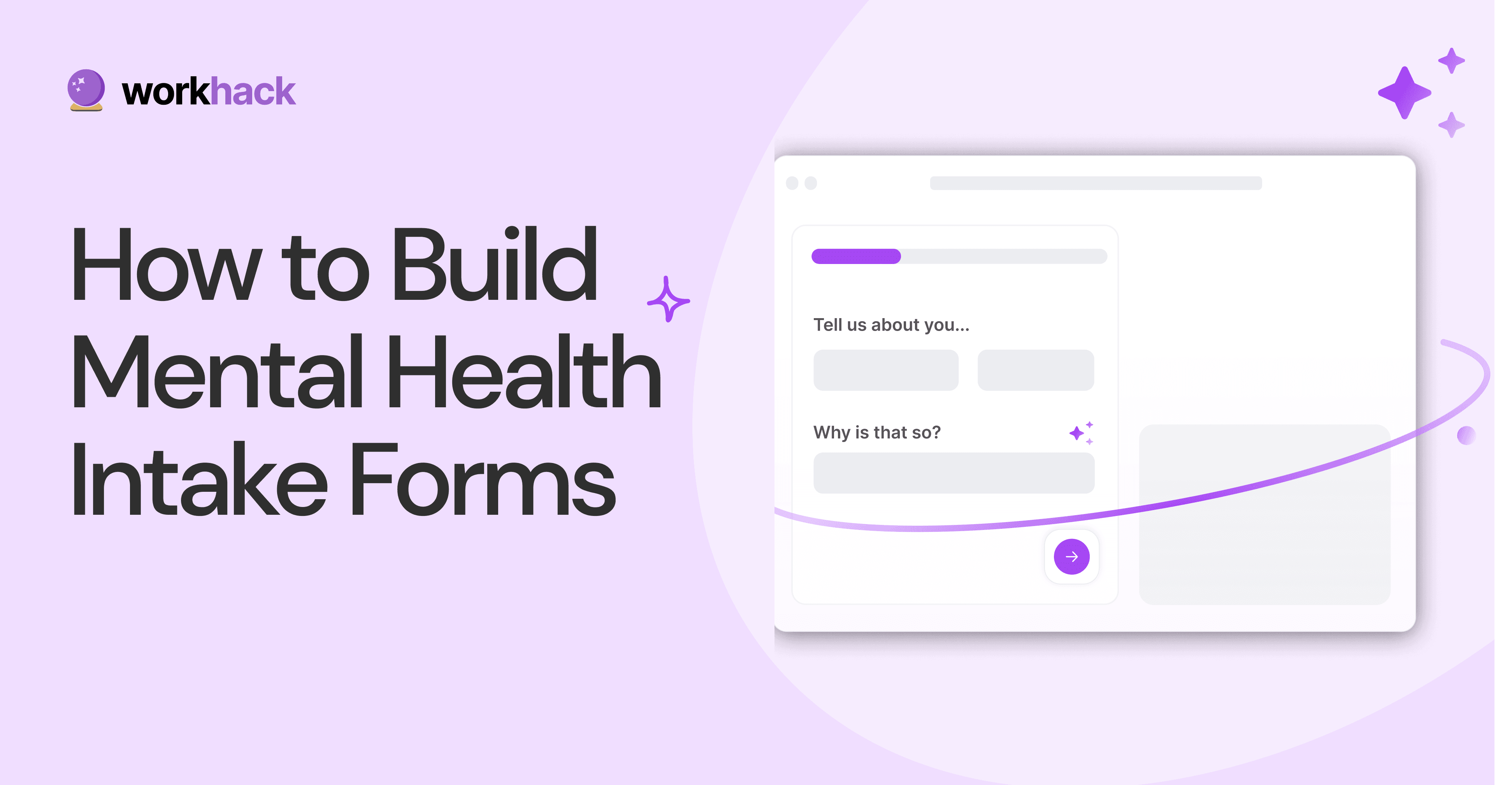
How to Build Mental Health Intake Forms?
Mental health intake forms are not like patient intake forms. Mental health intake forms deal with far more sensitive data and have specific design methods.
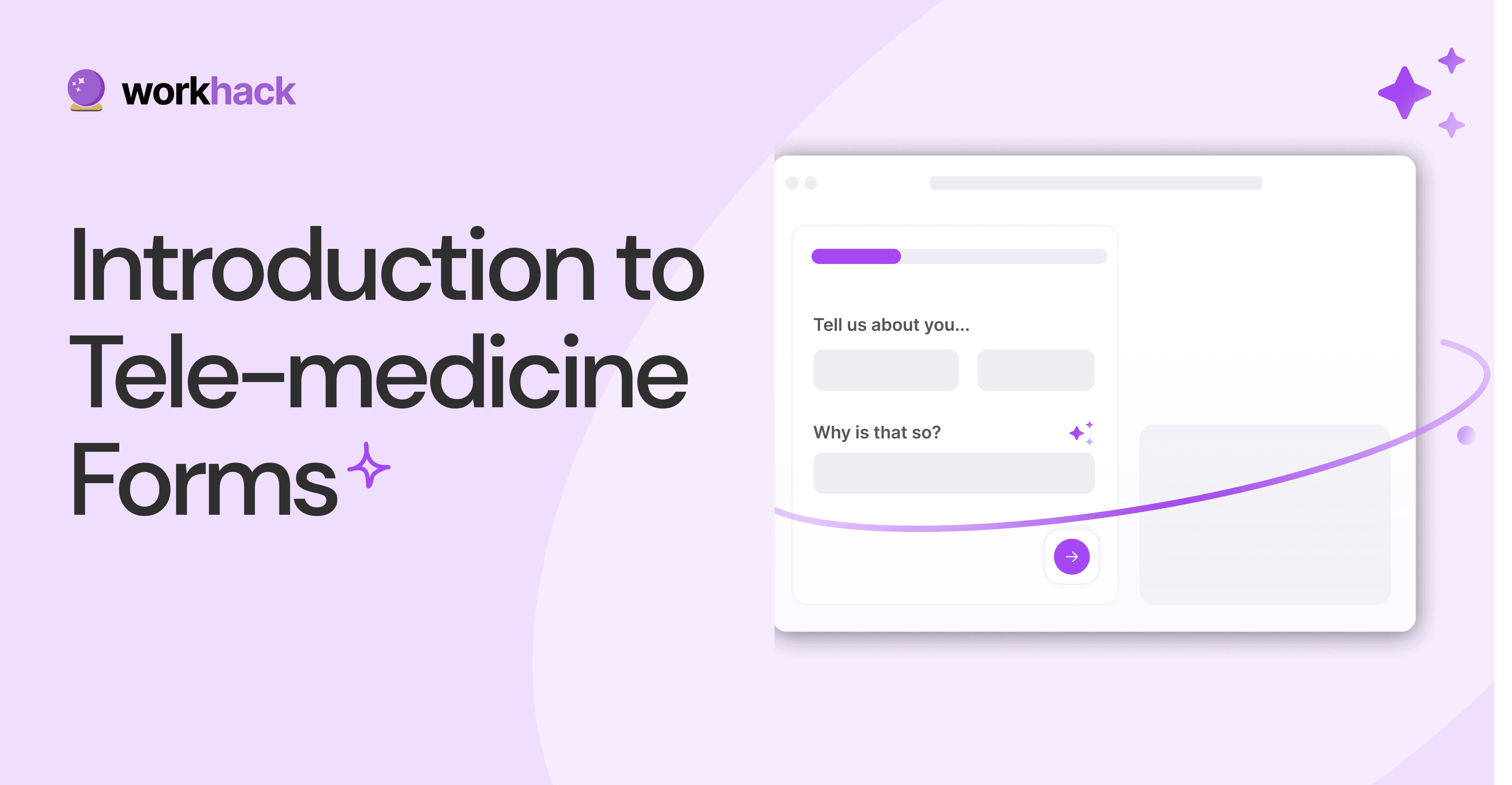
What, Why and How of Telemedicine Forms.
Telemedicine is on the rise and with different form builders out there, which one best suits your needs as a healthcare services provider?
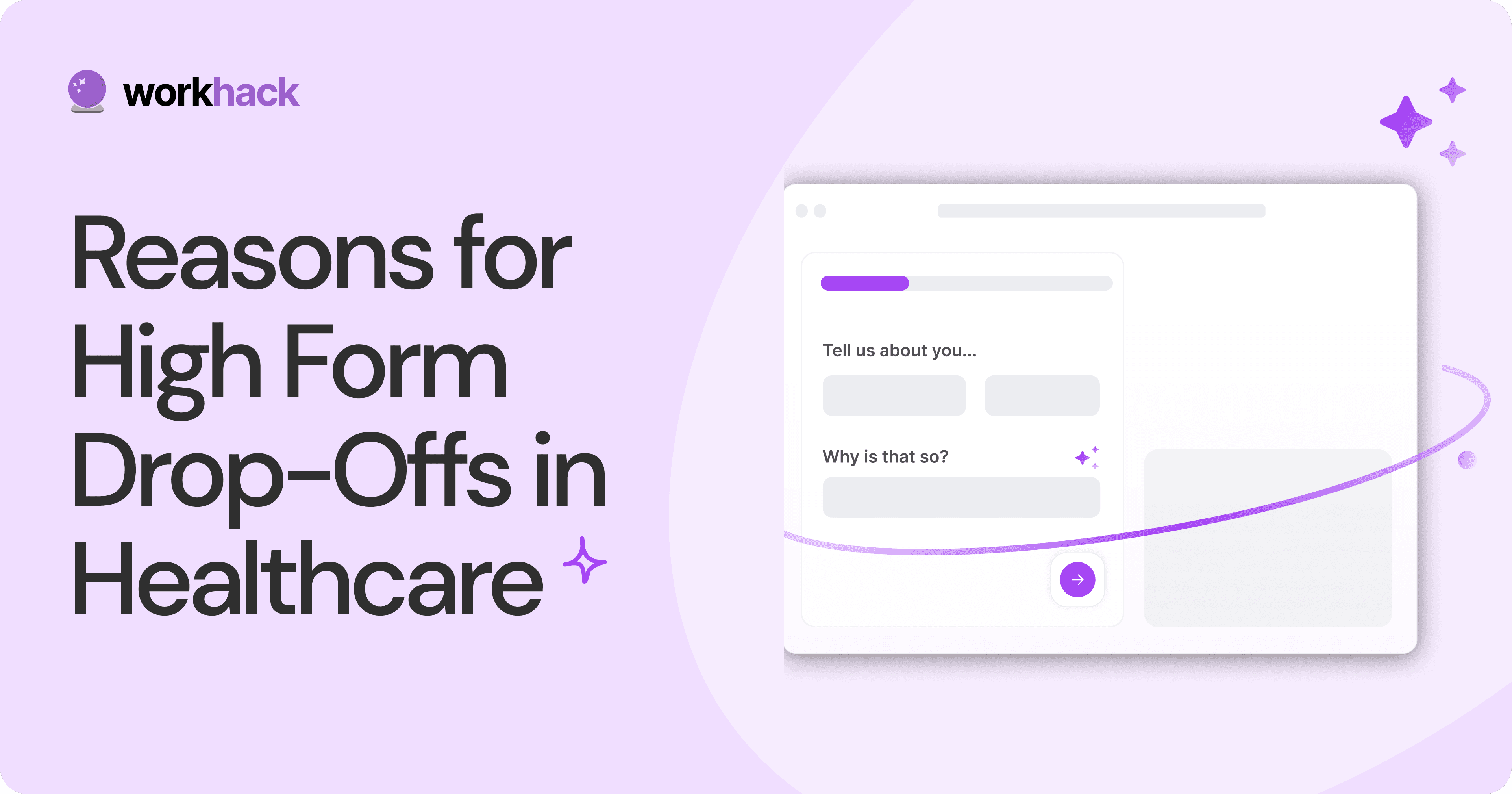
3 Reasons for Major Drop-Offs in Medical Forms.
No matter which healthcare form we pick, there are major drop-off reasons. We shall dive into the top 3 and learn how to resolve them in your next form.
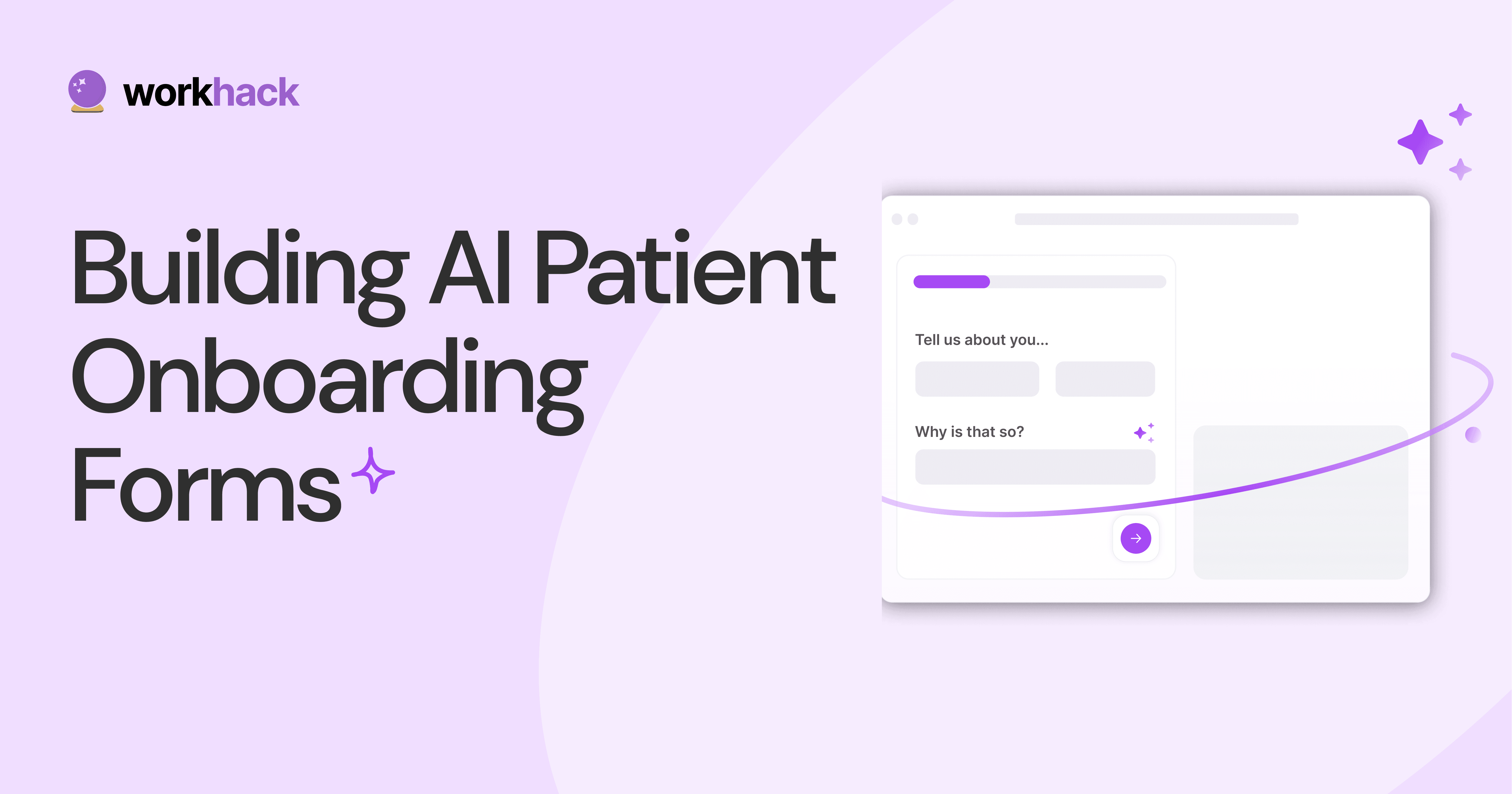
Patient Onboarding Forms - From Click to Clinic.
Patient onboarding forms are the first touchpoint for patients; getting this right for higher conversion rates is a must-have. Learn how to perfect them now.
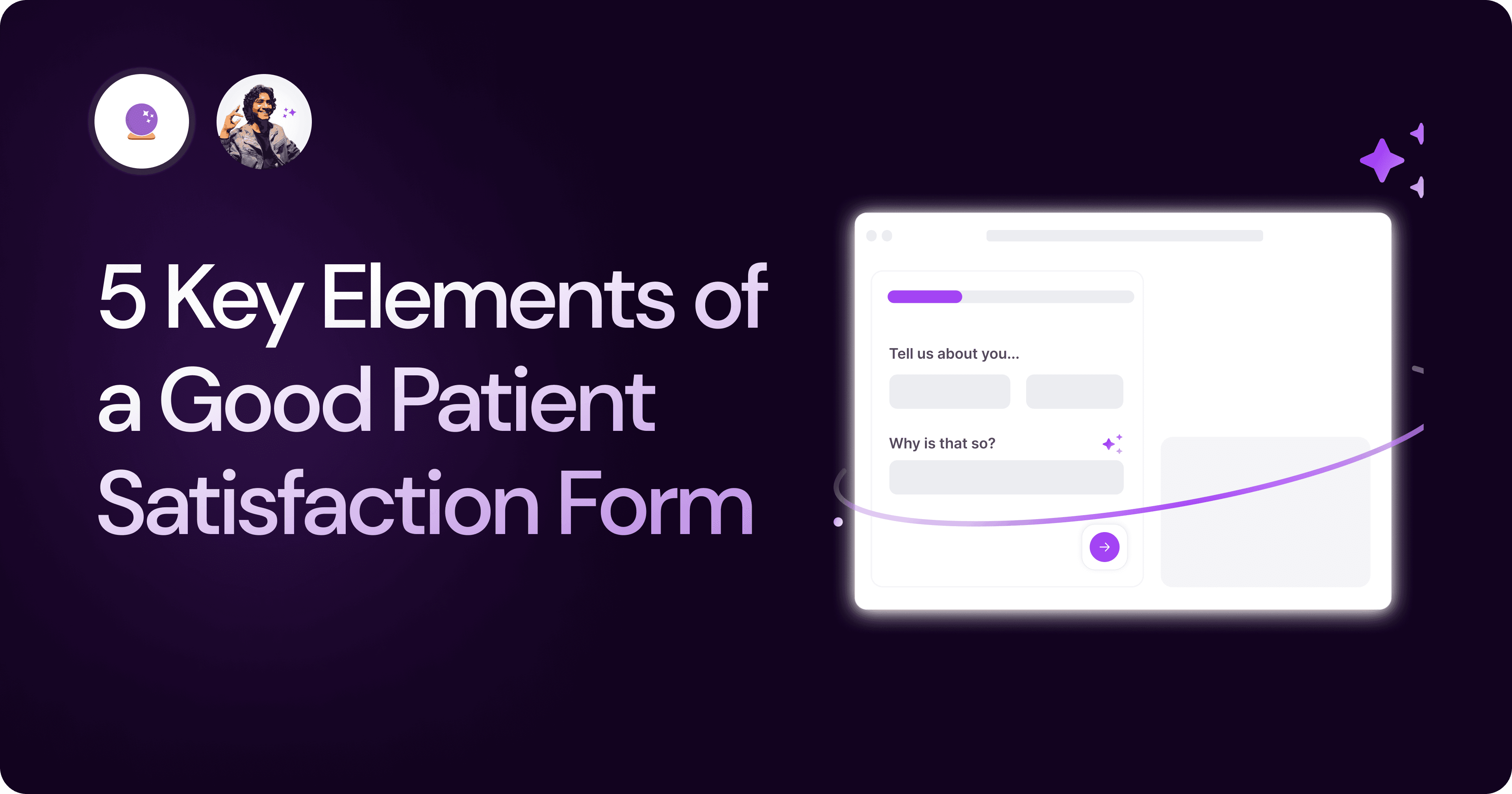
5 Key Parts of a Good Patient Satisfaction Form.
The goal of patient satisfaction surveys is to course-correct the services of a healthcare provider. Patient feedback leads to a culture of patient-centric care.
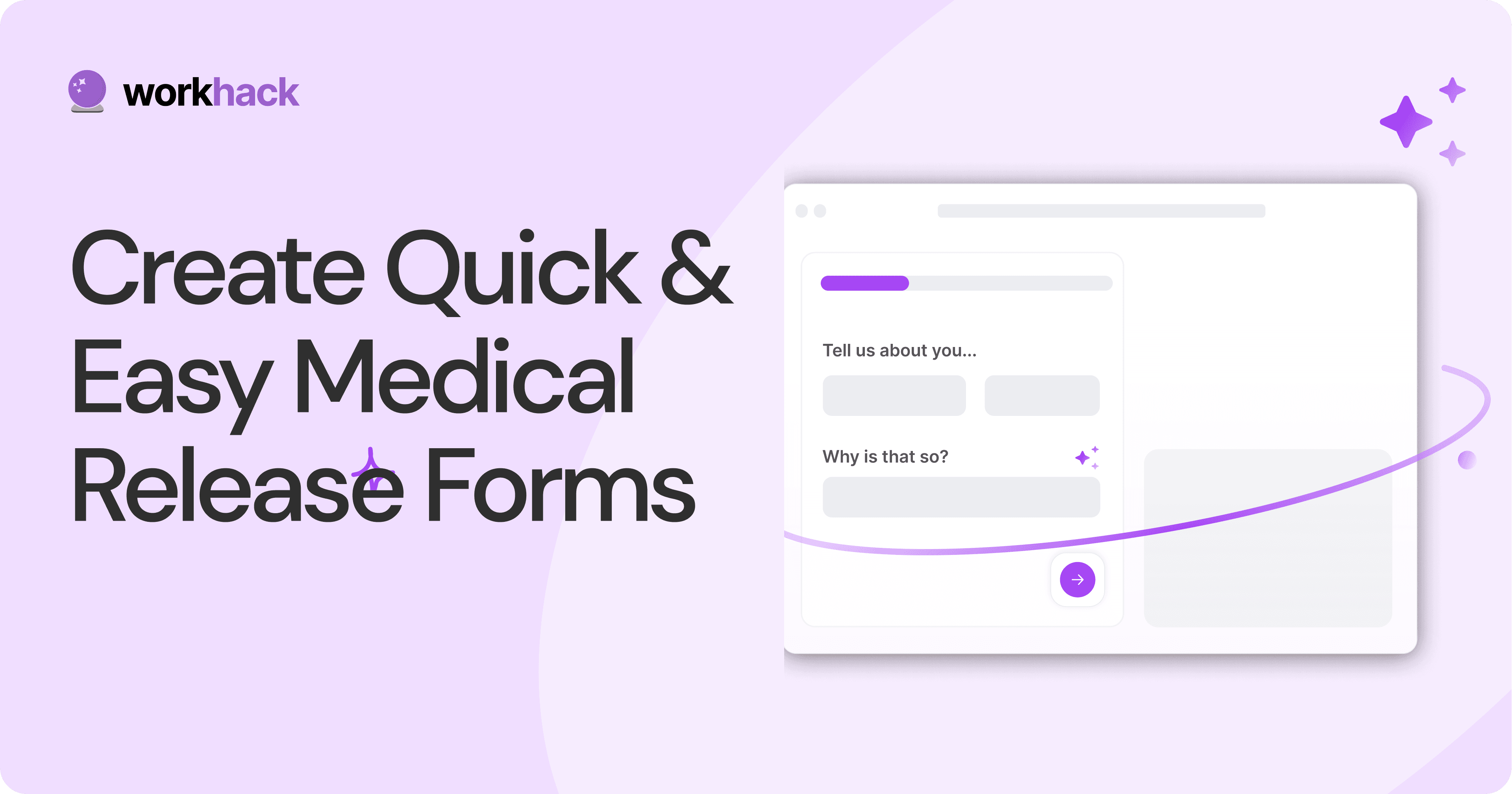
Build Quick and Easy Medical Release Forms.
Every HIPAA-compliant healthcare provider comes across medical release forms that involve details from medical history forms. Can they be shipped fast? Yes.

Nine Types of Healthcare and Medical Forms.
Medical forms are a must-have for any healthcare business or practitioner. Learn about the different kinds of medical and healthcare forms.

4 Tips for Better Medical History Forms.
Medical history forms are central to patient care, onboarding, and medical administration records. Learn how to make them easier to fill.

How to Build Mental Health Intake Forms?
Mental health intake forms are not like patient intake forms. Mental health intake forms deal with far more sensitive data and have specific design methods.

What, Why and How of Telemedicine Forms.
Telemedicine is on the rise and with different form builders out there, which one best suits your needs as a healthcare services provider?

3 Reasons for Major Drop-Offs in Medical Forms.
No matter which healthcare form we pick, there are major drop-off reasons. We shall dive into the top 3 and learn how to resolve them in your next form.

Patient Onboarding Forms - From Click to Clinic.
Patient onboarding forms are the first touchpoint for patients; getting this right for higher conversion rates is a must-have. Learn how to perfect them now.

5 Key Parts of a Good Patient Satisfaction Form.
The goal of patient satisfaction surveys is to course-correct the services of a healthcare provider. Patient feedback leads to a culture of patient-centric care.

Build Quick and Easy Medical Release Forms.
Every HIPAA-compliant healthcare provider comes across medical release forms that involve details from medical history forms. Can they be shipped fast? Yes.

Nine Types of Healthcare and Medical Forms.
Medical forms are a must-have for any healthcare business or practitioner. Learn about the different kinds of medical and healthcare forms.

4 Tips for Better Medical History Forms.
Medical history forms are central to patient care, onboarding, and medical administration records. Learn how to make them easier to fill.

How to Build Mental Health Intake Forms?
Mental health intake forms are not like patient intake forms. Mental health intake forms deal with far more sensitive data and have specific design methods.

What, Why and How of Telemedicine Forms.
Telemedicine is on the rise and with different form builders out there, which one best suits your needs as a healthcare services provider?

3 Reasons for Major Drop-Offs in Medical Forms.
No matter which healthcare form we pick, there are major drop-off reasons. We shall dive into the top 3 and learn how to resolve them in your next form.

Patient Onboarding Forms - From Click to Clinic.
Patient onboarding forms are the first touchpoint for patients; getting this right for higher conversion rates is a must-have. Learn how to perfect them now.

5 Key Parts of a Good Patient Satisfaction Form.
The goal of patient satisfaction surveys is to course-correct the services of a healthcare provider. Patient feedback leads to a culture of patient-centric care.

Build Quick and Easy Medical Release Forms.
Every HIPAA-compliant healthcare provider comes across medical release forms that involve details from medical history forms. Can they be shipped fast? Yes.

Nine Types of Healthcare and Medical Forms.
Medical forms are a must-have for any healthcare business or practitioner. Learn about the different kinds of medical and healthcare forms.

4 Tips for Better Medical History Forms.
Medical history forms are central to patient care, onboarding, and medical administration records. Learn how to make them easier to fill.

How to Build Mental Health Intake Forms?
Mental health intake forms are not like patient intake forms. Mental health intake forms deal with far more sensitive data and have specific design methods.

What, Why and How of Telemedicine Forms.
Telemedicine is on the rise and with different form builders out there, which one best suits your needs as a healthcare services provider?

3 Reasons for Major Drop-Offs in Medical Forms.
No matter which healthcare form we pick, there are major drop-off reasons. We shall dive into the top 3 and learn how to resolve them in your next form.

Patient Onboarding Forms - From Click to Clinic.
Patient onboarding forms are the first touchpoint for patients; getting this right for higher conversion rates is a must-have. Learn how to perfect them now.

5 Key Parts of a Good Patient Satisfaction Form.
The goal of patient satisfaction surveys is to course-correct the services of a healthcare provider. Patient feedback leads to a culture of patient-centric care.

Build Quick and Easy Medical Release Forms.
Every HIPAA-compliant healthcare provider comes across medical release forms that involve details from medical history forms. Can they be shipped fast? Yes.
Subscribe to stay updated.
Subscribe to stay updated.
Subscribe to stay updated.
HC

HC

HC

HC

70+ people from across industries read our emails.
HC

HC

70+ people from across industries read our emails.
HC

HC

HC

70+ people from across industries read our emails.




Bangalore, India / San Francisco, US
WorkHack Inc. 2023
Bangalore, India
San Francisco, US
WorkHack Inc. 2023
WorkHack Inc. 2023
Bangalore, India / San Francisco, US
WorkHack Inc. 2023
Bangalore, India / San Francisco, US



